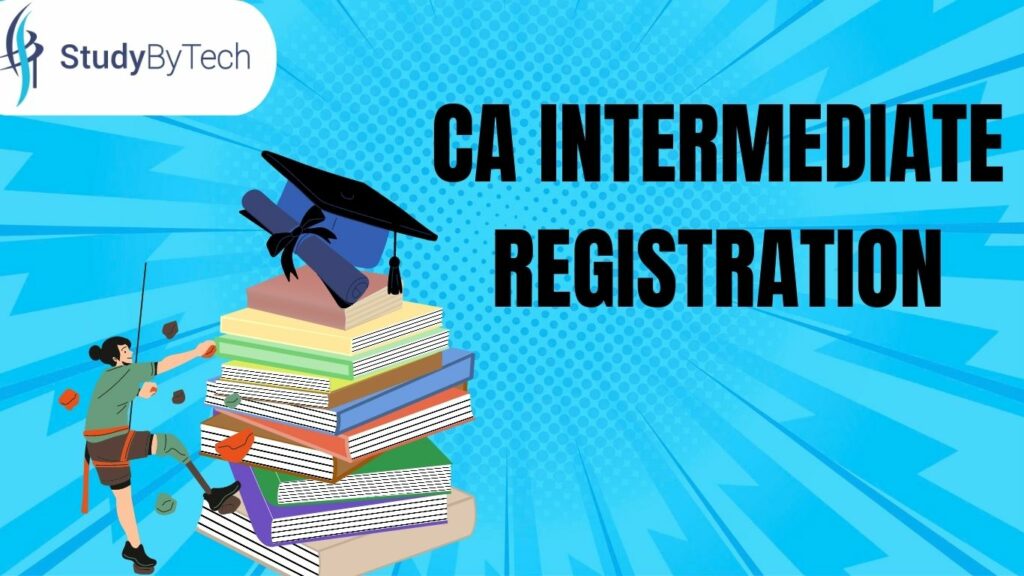Mastering CA Intermediate Costing: Unlocking Success in Your Chartered Accountancy Journey
Introduction We’re happy that you’re here to learn how to take CA Intermediate Costing! As the leading authority on Chartered Accountancy (CA), we notice the value of offering outstanding information that not only informs but also inspires ambitious professionals like you. We will go into the complexities of CA Intermediate Costing in this essay, giving you the information and abilities needed to flourish in this field and advance yourself towards success. Cost and Management Accounting is a crucial subject in the CA Inter exams. It requires a thorough understanding of cost concepts, budgeting, cost control, and decision making. To excel in this subject, students need to adopt effective study strategies and apply their knowledge to practical scenarios. In this blog, we will provide you with valuable tips to help you master Cost and Management Accounting for CA Inter exams. To Know deeply about CA INTER COSTING GROUP 2: CLICK HERE CA INTERMEDIATE COST & MANAGEMENT ACCOUNTING PRODUCT: PURCHASE NOW Understanding CA Intermediate Costing What is CA Intermediate Costing? CA Intermediate Costing, also known as the “Cost and Management Accounting” paper, is a vital component of the CA Intermediate curriculum. It focuses on developing your understanding of various cost and management accounting concepts, techniques, and tools. This subject plays a crucial role in preparing you to make informed financial decisions, analyze costs, and contribute to the strategic planning and control processes within organizations. Importance of CA Intermediate Costing: Mastering CA Intermediate Costing is essential for several reasons: 1. Comprehensive Knowledge: A strong foundation in cost and management accounting concepts is essential for aspiring CAs to navigate complex financial scenarios confidently. 2.Professional Competence: Competence in cost and management accounting enables CAs to provide valuable insights, aid decision-making, and contribute to the overall financial health of organizations. 3. Examination Significance: Scoring well in the CA Intermediate Costing paper is crucial for achieving a high overall score in the CA Intermediate examination. CA Intermediate Cost and Management Accounting Syllabus 2024 The CA Intermediate Costing Syllabus is made available by ICAI each year. The topics and chapters that will be covered in the examination are all current knowledge that is contained in the syllabus. Students will stay informed about any new ICAI modifications thanks to the CA Inter Costing syllabus. When creating your study plan, syllabuses are helpful. Below are the CA Inter Cost and Management Accounting Syllabus 2024 Chapters No. Chapters Name Chapter 1 Overview of cost and management Accounting Chapter 2 Ascertainment of Cost and Cost Accounting System Chapter 3 Method of Costing Chapter 4 Cost Control and analysis CA Intermediate Cost and Management Accounting- Study Material 2024 The CA Inter Costing syllabus guarantees that students are kept informed of any fresh ICAI modifications. Making a study plan involves using course resources. Once they have finished registering and creating a costing study plan in accordance with it, students should completely read over your CA Intermediate Costing study material. Download CA Intermediate Cost and Management Accounting PDF Now. Module-1 Module-2 CA Intermediate Costing 2024 Exam Pattern and Marking Scheme. The theory-based CA Intermediate Cost and Management Accounting paper. The CA Intermediate Costing 2023 Marking system is described below. How to study for CA Inter Cost & Management Accounting: Studying for the CA Inter Cost Management and Accounting paper requires a systematic and focused approach. Here are some tips to help you prepare effectively: 1. Understand the Syllabus: Start by familiarizing yourself with the syllabus and the topics covered in the Cost & Management Accounting paper. This will give you a clear roadmap of what you need to study and allocate your time accordingly. 2. Create a Study Plan: Develop a study plan that covers all the topics in the syllabus. Break down the subjects into manageable study sessions and allocate sufficient time to each topic. Be realistic in setting your study goals and make sure to include regular revision sessions. 3. Study Material: Gather the relevant study material, including textbooks, reference books, study guides, and any supplementary resources recommended by your coaching institute. Ensure that you have access to updated and comprehensive study materials. 4. Understand Concepts: Cost Management and Accounting involve numerous concepts, formulas, and techniques. Take the time to understand the underlying principles of each topic. Start with the basics and gradually build upon your knowledge. If you come across any concepts that are challenging, seek clarification from your professors or refer to additional study resources. 5. Practice Numerical Problems: Cost Management and Accounting are practical subjects that require a strong application of concepts. Practice solving numerical problems from past exam papers and practice manuals. Focus on developing speed and accuracy in calculations. 6. Case Studies: Familiarize yourself with case studies that demonstrate real-life scenarios. Understand the problem, identify the relevant information, and apply the appropriate concepts and techniques to analyze and solve the case. This will help you develop a practical understanding of how to apply cost management principles in different situations. 7. Make Notes: While studying, create concise and organized notes. Summarize the key points, formulas, and examples for each topic. These notes will serve as a handy revision tool in the final days before the exam. 8. Revision: Regularly revise the topics you have covered to reinforce your understanding. Review your notes, solve additional practice questions, and participate in mock exams to assess your knowledge and identify areas that require further attention. 9. Time Management: Manage your time effectively throughout your study period. Set deadlines for completing each topic and stick to them. Avoid procrastination and maintain a consistent study schedule. 10. Mock Exams: Take mock exams under exam-like conditions to simulate the actual exam experience. This will help you improve your time management, identify weak areas, and get accustomed to the exam format. 11. Stay Positive and Take Breaks: Maintaining a positive mindset is crucial during the preparation phase. Take short breaks to relax and rejuvenate. Engage in activities that help you destress and maintain a healthy balance between study and leisure. Remember, consistent effort and dedication









